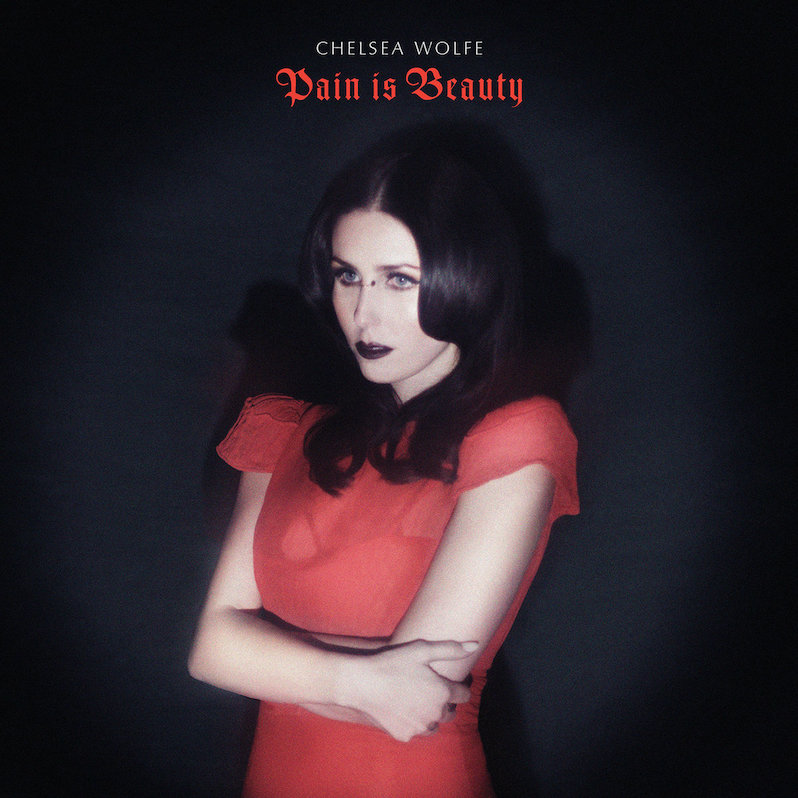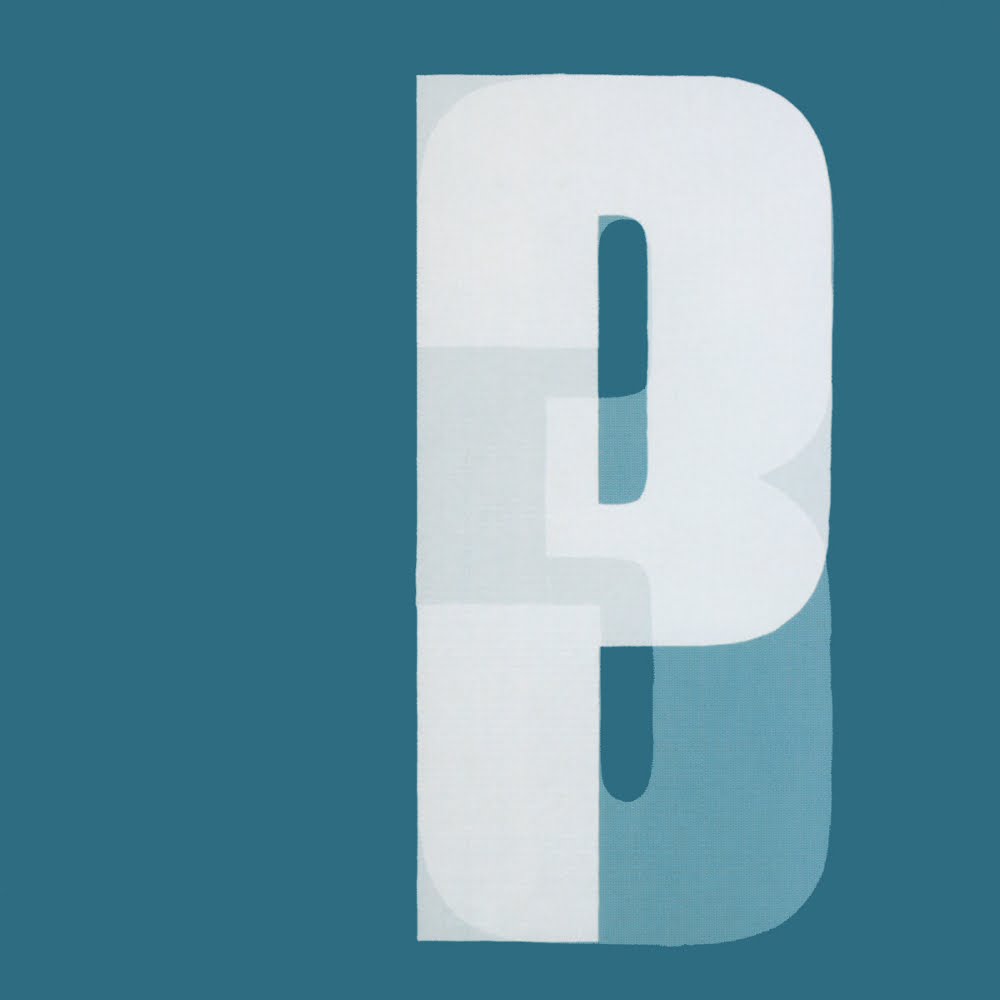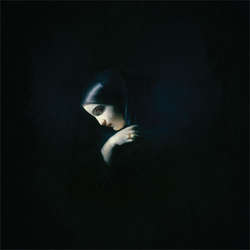Chelsea Wolfe : Pain Is Beauty

For an artist whose prior works have been defined largely by self-imposed limitations, Chelsea Wolfe has always seemed on the verge of something huge. On her sophomore album, 2011’s discordant and gothic Apokalypsis, the Los Angeles singer/songwriter maintained an atmosphere of creeping dread, layering her songs with fear and sorrow, all beneath a hazy layer of noise and fog. Last year’s Unknown Rooms took the opposite approach, opening up Wolfe’s songwriting to some fresh air, her melodies unburdened by effects, yet they remained stark and skeletal, capable of being expanded into much bigger creations, were Wolfe invested in providing the necessary architecture. After all, if it’s not shadowy, massive and ornate, is it even goth?
To dub Wolfe simply “gothic” would oversimplify things, perhaps, but even in her humbler compositions, she’s given an indication of ambitions toward something bigger, prettier—even, unlikely as it sounds, darker. That something is Pain Is Beauty, her fourth proper album and best set of songs yet. Initially written for a now-aborted side project with bandmate Ben Chisholm, a good lot of the songs on Pain Is Beauty contain a heavier dose of electronics than any of Wolfe’s past albums. There’s a streamlined ethereality this time, and with cleaner production. Just as Wolfe’s visage is no longer hidden behind veils or depicted with her eyes whited out, her songs are given the gift of clarity and crispness, putting their beauty into brighter focus.
And yet, for how graceful it is, Pain Is Beauty is still incredibly heavy. Not in a metal sense, necessarily—though Wolfe has spoken about her black metal influences in the past, as well as having covered a Burzum song. The heaviness that Wolfe captures is more versatile than mere stylistic tropes. It’s a harder-to-define feeling that falls somewhere between intense devotion and world-crushing dread, palpable in songs like the dense, harrowing “Sick.” Wolfe echoes the simple, profound sentiment of the album’s title in a line such as “This suffering brings me closer to you,” later ratcheting up the sentiment a few notches by declaring, “I should be put to death for ever being cruel to you.”
As has been a defining characteristic of Wolfe’s musical career, Pain Is Beauty is also rife with musical drama, sans overt camp or theater. The electronic bass notes that ring out at the beginning of opening track “Feral Love” carry a familiar, chilly feeling. But as the song grows and opens up, it turns much grander and more propulsive than its sparse, eerie introduction. By contrast, “We Hit A Wall” contains few such explosive, climactic sweeps, but rather makes meaningful, subtle shifts. As it begins its slow Badalamenti-meets-Gira post-punk pulse, Wolfe’s voice is as gorgeous as it’s ever sounded. She finds a common ground between naïveté and hopelessness, following “We were never warned” with “How is this the world,” and closing with a mesmerizing mixture of her own multi-tracked vocals and layers of strings. It’s breathtaking.
The crisper sound on Pain Is Beauty likewise allows Wolfe to transition from the more ominous material to delicate pop songs with greater ease, following “Feral Love” and “We Hit A Wall” with the intricate electro-pop of “House of Metal” and “The Warden.” In both tracks, her vocals take on a gentler, ghostlier form, evoking with slighter movements what broader strokes could never do. Still, when Wolfe fuses her subtler sounds with that grand sense of drama she wields so perfectly, she ends up with a song like “The Waves Have Come,” as massive and devastating a song as she’s ever written. In the eight-minute ballad, Wolfe depicts the end of the world in terms of being reunited with a love that’s gone, presumably dead: “When earth cracks open and/ Swallows then we’ll never be tired again, and/ we’ll be given everything.” No doubt, it’s a ghastly, terrifying image, but Wolfe transforms it into a romantic, even comforting one. It’s not easy to take something so unwieldy and make it into an event so intimate and personal. Pulling that off requires thinking big.
Label: Sargent House
Year: 2013
Similar Albums:
Note: When you buy something through our affiliate links, Treble receives a commission. All albums we cover are chosen by our editors and contributors.
Jeff Terich is the founder and editor of Treble. He's been writing about music for 20 years and has been published at American Songwriter, Bandcamp Daily, Reverb, Spin, Stereogum, uDiscoverMusic, VinylMePlease and some others that he's forgetting right now. He's still not tired of it.




